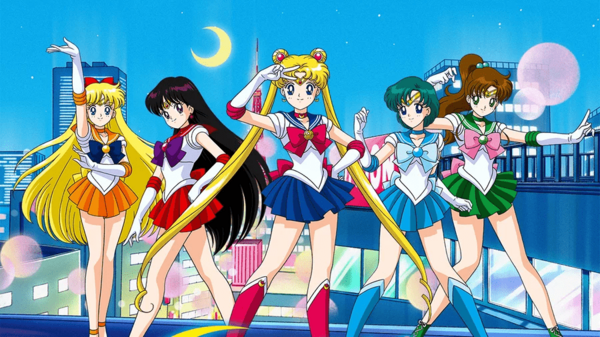The official discord link if you wish to join the discord: https://discord.gg/j5RKwCvAFu
Support the wiki on our official Ko-Fi page or Patreon page!
Category:Maho Shojo: Difference between revisions
GiverOfThePeace (talk | contribs) (GiverOfThePeace moved page Category:Mahou Shoujo to Category:Mahou Shojo) m |
|||
| (2 intermediate revisions by the same user not shown) | |||
| Line 5: | Line 5: | ||
In the 1990s, Sailor Moon introduced the concept of a "transforming heroine" who fights against forces of evil, a synthesis of elements from tokusatsu hero shows that became a staple for magical girl series that followed. The growth of late-night anime in the early 2000s led to a demographic shift for the genre, where series with more mature themes such as Puella Magi Madoka Magica (2011) were created and marketed towards an older male audience. | In the 1990s, Sailor Moon introduced the concept of a "transforming heroine" who fights against forces of evil, a synthesis of elements from tokusatsu hero shows that became a staple for magical girl series that followed. The growth of late-night anime in the early 2000s led to a demographic shift for the genre, where series with more mature themes such as Puella Magi Madoka Magica (2011) were created and marketed towards an older male audience. | ||
[[Category:Manga]] | |||
[[Category:Anime]] | |||
Latest revision as of 20:28, 1 June 2023

Magical girl (Japanese: 魔法少女, Hepburn: mahō shōjo) is a subgenre of Japanese fantasy media (including anime, manga, light novels, and live-action media) centered around young girls who possess magical abilities, which they typically use through an ideal alter ego into which they can transform.
The genre emerged in 1962 with the manga Himitsu no Akko-chan, followed by Sally the Witch in 1966. A wave of similar anime produced in the 1970s led to majokko (魔女っ子, lit. "little witch") being used as a common term for the genre. In the 1980s, the term was largely replaced by "magical girl", reflecting the new popularity of shows produced by other studios, including Magical Princess Minky Momo and Creamy Mami, the Magic Angel.
In the 1990s, Sailor Moon introduced the concept of a "transforming heroine" who fights against forces of evil, a synthesis of elements from tokusatsu hero shows that became a staple for magical girl series that followed. The growth of late-night anime in the early 2000s led to a demographic shift for the genre, where series with more mature themes such as Puella Magi Madoka Magica (2011) were created and marketed towards an older male audience.
Pages in category "Maho Shojo"
The following 11 pages are in this category, out of 11 total.
